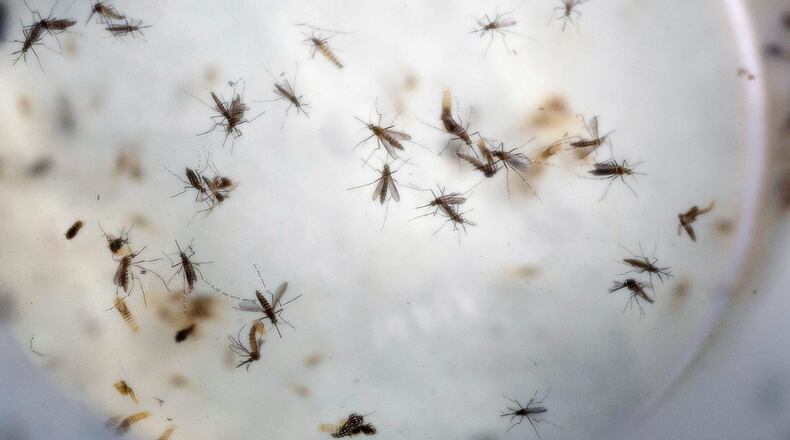WASHINGTON -- Senate Democrats on Tuesday filibustered a $1.1 billion Zika-related spending bill, resuming a hard-line stance aimed at forcing GOP leaders to drop a provision they say targets Planned Parenthood.
Senators voted 52-46 in favor of the measure, but 60 votes were needed to advance it.
Tuesday's vote marked the third time the Senate has voted on -- and rejected -- the same Zika plan, which was negotiated earlier this summer primarily by GOP lawmakers. Majority Leader Mitch McConnell's decision to bring up the measure first thing after a seven week-long recess was effectively a dare for Democrats to continue blocking the measure -- and potentially look bad in the eyes of the public after new cases of the virus have popped up across the country.
Republicans quickly framed Democrats as obstructionists.
"Despite Democrats’ rhetoric, if they had not blocked this funding, Congress could have acted on Zika months ago," said U.S. Sen. David Perdue, R-Ga. "This is a textbook example of the partisan political fights that have Georgians and Americans fed up with Washington."
Democrats are unhappy with provisions in the bill that would block funding for Planned Parenthood clinics in Puerto Rico, allow Confederate flags to continue flying at certain federal veterans cemeteries and a proposed cut to an Obamacare program. They want all of those provisions dropped before they'll approve Zika funding.
"Republicans were more interested in attacking Planned Parenthood and flying the confederate flag than protecting women and babies from this awful virus," said Senate Minority Leader Harry Reid, D-Nev.
Lawmakers will likely need to go back to the drawing board if they'd like to send major new dough to the Atlanta-based Centers for Disease Control and Prevention, which is doing a lot of the frontline work on Zika, and the National Institutes of Health, which is helping developing a vaccine.
CDC Director Dr. Tom Frieden said in an interview last week that the agency is nearly out of money.
“Basically, we’ve run out,” Frieden said of the $222 million Congress previously allocated to fight the virus. “The sooner they act, the sooner we can make progress. Some of the studies that we have not been able to start are multiyear studies that require funding in the short term.”
More Zika coverage:
Zika funding, budget stopgap among big jobs on Congress’ to-do list
About the Author



